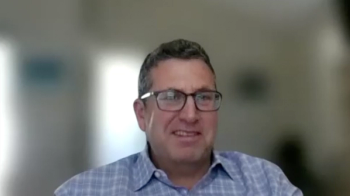
Dr Eric Rackow Discusses the Role of Virtual Support for Family Caregivers
Eric Rackow, MD, cofounder and executive chairman of eFamilyCare, discusses eFamilyCare's role for family caregivers and how the system can help overcome social determinants of health that may impact patient outcomes.
Eric Rackow, MD, cofounder and executive chairman of
Transcript
Can you elaborate on eFamilyCare’s framework for supporting caregivers?
Well, let's start with the importance of family caregiving in general. When you look at health care today, there's an unutilized and even unrecognized workforce that's available to the health care industry, which they really neglected: the family caregiver. And since we want to move care from the hospital to home, the question becomes, "Who's going to take care of those people at home over the long run?" And the answer, 85% of the time, is the family. So the family caregiver is an extremely important part of health care that needs to be recognized and supported because the family caregiver, in fact, is not trained as a health care worker is overwhelmed by the tasks ahead of them, and have very little support. Actually, studies show that three quarters of the time, family caregivers receive no support from health care workers that are taking care of their loved one, who is the patient. So we think it's very important to support family caregivers. And in an age of technology, using digital means to be able to coach, educate, and support family caregivers becomes a very efficient way to do that.
How does eFamilyCare use this framework to focus on functionality and social determinants of health?
When you look at health care and you look at health care outcomes in patients, although clearly the diseases they have, the medications they're prescribed, and the interventions they're treated with are important, equally important is the ability of the patient to take care of themselves and to overcome social determinants of health. And often, they cannot do that themselves because they have functional decline—they could have cognitive decline and memory loss, or they could have behavioral problems and are depressed, or they could have physical problems and can't ambulate well. And, in addition, in terms of social determinants of health that are barriers, maybe they don't have transportation to go food shopping, maybe they can't get their medicines at the pharmacy and have to have it delivered. So what we do with digital support through our proprietary app is advise family caregivers [on] how to make sure the person is following the care plan, make sure they're getting their medications, [and] make sure that whatever problems they have are supported, because the patient themself may not be able to do it. And the family caregiver takes up that role, or at least becomes a person that enables those issues to be addressed.
Newsletter
Stay ahead of policy, cost, and value—subscribe to AJMC for expert insights at the intersection of clinical care and health economics.
















